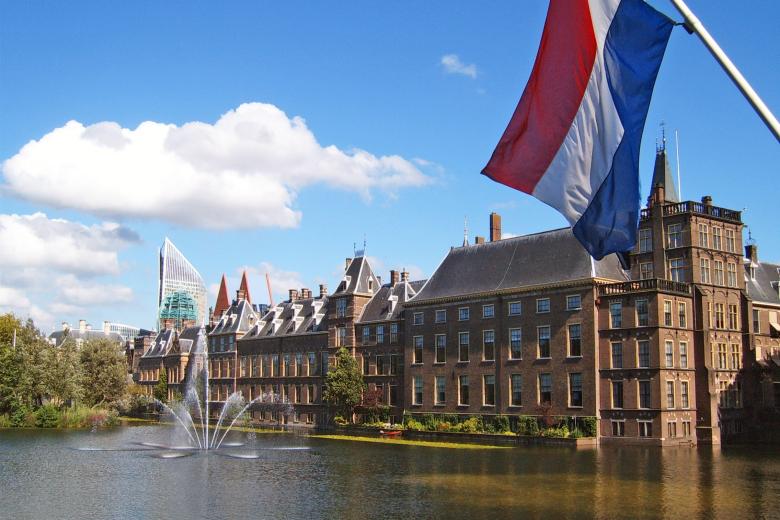Election analysis: much to do? (part 1)
Emmanuel Macron’s victory in the French presidential election cannot distract from the fact that many challenges remain. President Macron’s most pivotal challenge in terms of governance will arrive in June.
Walking out to the strains of Beethoven’s “Ode to Joy”, with the majestic backdrop of the well-lit Louvre courtyard, Emmanuel Macron probably felt a sense of joy himself. At 39, he had completed a meteoric rise in politics by winning the second round of the French presidential election with around 66% of all valid votes cast. The former civil servant, investment banker and minister of economics will thus become the youngest President of the French Republic since the current French constitution was introduced in 1958. Another first occurring with Macron’s victory will be the fact that he will be the first candidate to not hail from one of the major established parties of the centre-right and the centre-left, which had essentially alternated in power for much of the Fifth Republic. Therefore, it is no exaggeration to refer to the 2017 race for the Elysée Palace as truly historic.
However, not everyone was inspired by the machinations of the leading candidates. Of the 47,568,588 registered voters, around 16,170,672 opted to either stay home or cast an empty or spoilt ballot – which may have been caused by the extended holiday weekend and disillusionment about the candidates. Overall, the share of abstaining voters, combined with those submitting spoilt and empty ballots, amounts to approximately 34% of the French electorate. This amounts to the lowest turnout in a French presidential election since 1969. Finally, even though Macron soundly beat her, Marine Le Pen still almost doubled the Front National’s vote share in the final round of a presidential election from her father’s paltry 18% in 2002 to 34% in 2017. Let’s also not forget the first-round score of left-of-centre, Eurosceptic firebrand Jean-Luc Mélenchon, who scored 18% in the first round of the vote.
The choice was between Macron, an unabashedly pro-European, social-liberal candidate favouring a more flexible economy (something considered anathema by many centre-left and left-wing voters), closer ties to Germany; and Marine Le Pen, the leader of the nationalist Front National who had run on a platform of reducing legal immigration to 10,000 entrants a year, renegotiating the European Treaties (and instigating a national referendum on EU membership), leaving the Euro (although she strongly equivocated on this issue between the two rounds of balloting) and amending the French constitution to mandate a priorité nationale (national preference) for French citizens over jobseekers from other countries.
Le Pen: Unforced Errors
In the end, following on the heels of the United Kingdom’s plebiscitary decision to leave the European Union and Donald Trump’s surprise election as President of the United States, Ms Le Pen was not able to follow up with a winning performance herself. She committed a number of unforced errors: her performance in the presidential debate with Macron was deemed too aggressive and unpresidential – whilst this didn’t hurt Donald Trump across the Atlantic, French voters had different ideas about what they would prefer to see in their nation’s next leader. What was worse, though, was the fact that Ms Le Pen seemed to be on uneven ground when it came to her command of facts and economic data. Instead of clearly, calmly and persuasively explaining what she herself stood for and how she would set about realizing her governing agenda, she resorted to invective, personal attacks against Macron’s past as an investment banker and used her time to ineffectively tie him to deeply unpopular President François Hollande. For the Front National candidate, this debate was a wasted opportunity, as her performance (or lack of it) backfired on her.
Whilst some of her tactical moves during the second-round campaign (like naming her rival Nicolas Dupont-Aignan as a prospective prime minister in case she won; or stealing publicity during Macron’s visit to his hometown of Amiens) were noteworthy and unconventional, she could never overcome the stigma attached to the FN – both by the antics of her father, longtime Front leader Jean-Marie Le Pen, but also herself (for instance, when she appeared to trivialize Vichy France’s culpability during Nazi atrocities committed during the Second World War). The Front played with the fires of nationalist passion, but found itself short of supporters – moderation in tone and articulating a realistic strategy for governance (not wishful thinking and consistent resort to incendiary language) could have caused a dangerous turn towards the nationalist right. In the end, the centre held – also, because unlike in the United States, there are institutional safeguards against a populist temptation: a two-round majoritarian election system based on the popular vote, stringent campaign finance rules and strict equal-time laws (in news reports, campaign ads and the time each candidate can use during presidential debates) certainly did their part to prevent the sensationalist reporting that helped fuel Mr Trump’s rise to the presidency.
Lessons from Obama
Consequently, the responsibility of leading France in one of its most difficult times has now fallen on the shoulders of its youngest leader. Mr Macron’s energy, charisma and media savvy is reminiscent of another young politician – that one hailing from the South Side of Chicago who first became a state senator, then a US Senator and, in one of the most remarkable campaigns in American history, President of the United States: Barack Obama. Kindred spirits in more ways than one, Obama’s two terms as President can serve as both inspiration and warning to the Man from Amiens. Even though many constitutional details are different, there is one thing the United States and France have in common: You cannot be a highly effective President unless you secure an outright majority in your legislature. Obama enjoyed decisive majorities in both the House of Representatives and the Senate from 2009 until the congressional elections in 2010. Much got done, including the passage of the Affordable Care Act and the Lily Ledbetter Fair Pay Act, to only mention two examples of presidential success in those years. But that ended with the Republican triumph in the 2010 mid-term elections, when the Republican Party assumed control of the House of Representatives in 2010, followed by Senate control in the 2014 election. From those points onwards, the Obama agenda came to a screeching halt.
Mr Macron could now face a similar situation – and much sooner: In order to be able to govern effectively, President Macron will require a majority in the National Assembly. In 2002, as a result of a constitutional amendment, the terms of office of the President and the National Assembly were aligned in order to avoid the problem of cohabitation – essentially a form of divided government in which the presidency is held by a member of one party and the cabinet (consisting of the prime minister and other ministers) consists of members of another party (or, as the case may be: parties) that has won a National Assembly majority. Cohabitation governments have occurred in three instances during the Fifth Republic (in 1986-1988, 1993-1995 and 1997-2002). If a President’s own political party does not possess a majority in the National Assembly, then his/her ability to effectively implement his programme for government is severely impaired. In times of cohabitation, the domain of foreign affairs is seen as presidential in nature, whereas all domestic policy issues are handled by the prime minister. Up to now, since the introduction of the aforementioned constitutional amendment, every single French President since 2002 has been able to rely on his “own” majority in the National Assembly. But that’s where the problems could start for Mr Macron.
Part of a diptych on Emmanuel Macron’s victory
Read Election analysis: much to do? (part 2)
Published on Law Blogs Maastricht Image by Lorie Shaull on Flickr
-
The outcome of the British elections
From an academic perspective, we need to revise our textbooks: after Cameron-Clegg (2010-2015), and after a narrow majority for Cameron in 2015, there will be no majority party in the UK nowadays. (Dutch only)

-
Getting into force with a caretaker government?
Would that not be much more attractive? So: a Cabinet without excessive programme and with a number of subjects that can be left open. (Dutch only)

-
Election analysis: much to do? (part 2)
After the Celebrations: What’s next for France? President-elect Macron has his work cut out. His challenges are many. There is much to do.
